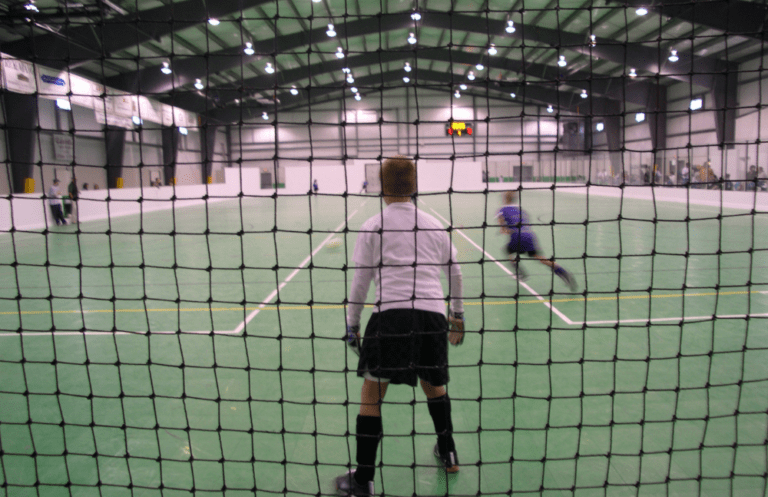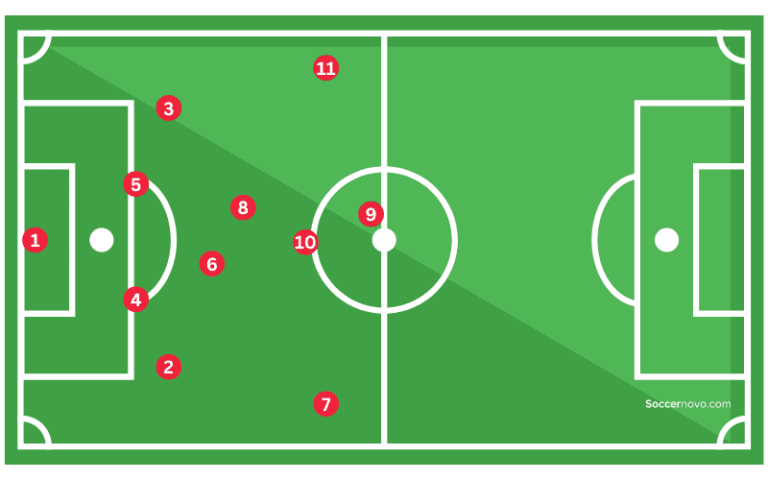Should I Play Multiple Soccer Games in One Day?

If you play soccer at a travel or club level, there have probably been times when you were asked to play multiple games in one day. It could be because you have a big tournament. Maybe you’re asked after your game to play again because the older age group doesn’t have enough kids.
Whatever the case may be, you might be wondering if it’s okay to play more than one game in a single day. It’s difficult to provide a definitive answer so we’ll say “yes” but there are risks involved.
Understanding the Risks
Playing multiple soccer games in one day can be physically demanding, especially if you’re not used to it. It can also increase your risk of injury, particularly if you’re not properly warmed up or if you’re playing in less-than-ideal conditions.
Additionally, playing too much soccer in a short period of time can lead to burnout and decreased performance in the long run.
Let’s break each drawback down…
Physical Demands
Playing a single 90-minute game of soccer requires a lot of energy and can lead to fatigue, dehydration, and muscle soreness. Doubling that intensifies the demands.
The physical demands of playing multiple games can vary depending on factors such as age, fitness level, and the intensity of the games.
If you decide to play multiple games it is important to properly prepare your body. This includes staying hydrated, eating a balanced diet, getting enough rest, and warming up properly before each game.
It is also equally important to listen to your body and take breaks when needed.
Risk of Injury
Playing too much soccer can cause injuries. This is because the physical demands of playing multiple games can lead to fatigue, which can increase the risk of muscle strains, sprains, and other injuries.
In addition, overuse injuries occur when the same muscles and joints are used repeatedly without enough time to rest and recover. This can lead to conditions such as shin splints, tendinitis, and stress fractures.
In most cases, you are more prone to injuring yourself if you play lower competition. Typically, better soccer players are more aggressive and put their skills into action. This could result in the opposition trying to stick a leg out to stop you or diving in with their body which can be very dangerous.
The exact scenario played out a couple of times when my son was eight and so we no longer let him play on other teams except his own.
Factors to Consider
Before deciding whether or not to participate in multiple games, there are several factors you should consider:
Age and Fitness Level
Your age and fitness level play a significant role in determining whether or not you should play multiple soccer games in one day.
Younger players may have more energy and stamina, while older players may need more time to recover between games. This is also due to the maturity of the opposition. Soccer games for older players tend to be more physical.
If you are not in good physical condition, it may be best to avoid playing multiple games in one day. Playing too many games can increase your risk of injury and also lead to exhaustion.
Weather Conditions
Playing in extreme heat, cold, or rain can be dangerous and increase your risk of injury. It is important to stay hydrated and dress appropriately for the weather conditions if you do decide to play.
If the weather conditions are extreme, it may be best to avoid playing multiple games in one day. Your personal safety should always be your top priority.
Game Schedule and Time Between Games
If the games are scheduled back-to-back, you may not have enough time to recover between games.
On the other hand, if the games are too long, you may become fatigued and tired.
You should also consider the level of competition and the intensity of the games. If the games are highly competitive and physically demanding, it may be best to sit the match out.
Benefits of Playing Multiple Games
By now you might be thinking that you’re definitely not playing multiple games but it can have benefits. Here are some reasons why:
Improved Endurance and Stamina
When you play one game, you may feel fatigued towards the end of the match.
However, if you play multiple games, your body will gradually adjust to the physical demands, and you’ll be able to sustain your energy levels for longer periods.
This can be especially beneficial if you’re playing in a tournament or a league where you have to play multiple games in a short period anyways.
A good coach will manage his or her players playing time if they know that there are multiple games in one day. If they aren’t aware, you can always sub yourself off at any time.
More Opportunities for Skill Development
When you play one game, you may only have a limited number of chances to practice certain skills.
When you play multiple games, you’ll likely have more chances to apply your skills in different situations. This can help you improve your decision-making, adaptability, and creativity on the field.
Also, if you do play for an older age group, you’ll most likely be playing with better players. This can be beneficial to your development as teammates will tend to make quicker and better decisions.
Final Thoughts
Playing multiple soccer games in one day can undoubtedly be a physically and mentally demanding task. It requires a lot of preparation and conditioning to ensure that you can perform at your best in each game.
If you are considering playing multiple games in one day, it is important to take into account your endurance, your overall health, and your experience playing soccer.
While some players may be able to handle playing multiple games in one day, others may be at risk of injury or exhaustion. It is important to listen to your body and take breaks when necessary. Only you will know.
No matter if you play one, two, or three games, it is important to make sure that you are properly hydrated and fueled with the right nutrients to help you perform at your best.
Ultimately, the decision to play multiple soccer games is a personal/family one that should be based on your individual abilities and circumstances.

Written By: Beau Bridges
Beau is the founder of SoccerNovo, dedicated to helping players and parents navigate the youth soccer landscape. As a former youth coach and soccer parent, he shares insights on player development, recruiting, and the ever-evolving soccer scene in the U.S.
Let’s connect






